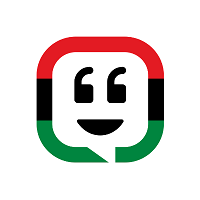What Is Customer Self-Service Software?
A digital tool called customer self-service software enables users to handle issues and find solutions without assistance from a human. Customers using this kind of software can obtain information, fix problems, and finish activities at their own leisure and convenience through a self-service portal or knowledge base.
A user-friendly interface, strong search capabilities, and an extensive collection of pertinent data and resources are the main characteristics of client self-service software. To further improve the client experience, some sophisticated self-service technologies also provide chatbots and virtual assistants. By diverting a sizable portion of live agent support inquiries, consumer self-service software can help firms cut expenses and workload. This is one of the main advantages of implementing it.
Additionally, it enables businesses to offer their clients round-the-clock assistance, increasing client retention and happiness. Additionally, by monitoring customer interactions and recognizing prevalent problems or commonly asked questions, customer self-service software can also provide businesses with insightful data. Products, services, and the general client experience can all be enhanced with the use of this data.
It is essential to take into account aspects like scalability, convenience of use, and interaction with current systems while searching for client self-service software. Selecting a system that supports your business objectives and provides sufficient training and support choices is also crucial.
In addition to helping customers, businesses can save money and boost productivity by investing in client self-service software. This software has become an essential tool for businesses trying to maintain their competitiveness and deliver top-notch customer service as self-service culture has grown.
What Are The Recent Trends In Customer Self-Service Software?
Customer self-service software has developed into a potent instrument for companies looking to boost customer happiness and customer support in recent years. Self-service software has witnessed a number of shifts as a result of technological advancements that are influencing how companies communicate with their clientele. We will examine current developments in client self-service software and their potential advantages for your company in this buyer's guide.
1. Integration Of Artificial Intelligence (AI): Using AI technology is one of the most popular developments in client self-service software. This enables automatic answers to frequently asked queries, freeing up human resources for more intricate research. AI also makes it possible for the software to learn and get better over time, giving users individualized and effective help.
2. Omnichannel Support: Customers now anticipate receiving assistance across a variety of channels, including messaging applications, social media, and websites. As a result, omnichannel support for customer self-service software has grown in popularity. This makes it possible for clients to get help via the channel of their choice, resulting in a smooth and fulfilling experience.
3. Mobile-Friendly Solutions: It should come as no surprise that customer self-service software is becoming increasingly mobile-friendly, given that most people use smartphones for the majority of their everyday tasks. Customers can now get help whenever they need it and from any location, which improves convenience and satisfaction levels.
4. Self-Service Analytics: Companies are now using self-service analytics to monitor and examine consumer self-service interactions in an effort to continuously enhance the customer experience. This results in a more effective self-service system by identifying common consumer problems and areas for development.
5. Video Self-Service: Using video solutions is another new trend in client self-service software. Customers can now view detailed video tutorials or demonstrations to help them troubleshoot their problems. It offers a more interesting and efficient self-service experience while streamlining the resolution process.
Benefits Of Using Customer Self-Service Software
Customers can obtain information and answers on their own without contacting customer support thanks to customer self-service software, which is a useful tool for companies of all sizes. It gives consumers the choice to self-serve and frees up important resources for companies. However, what particular advantages come with utilizing customer self-service software? Let's get started and examine the benefits of using this program in your company:
1. Cost Savings: Self-service software can help firms save a lot of money by eliminating the need for customer service agents. A study conducted by Gartner indicates that self-service alternatives can save up to 25% on costs. This is particularly advantageous for startups with tight budgets.
2. Enhanced Customer Satisfaction: Consumers can solve their own problems without waiting for help thanks to consumer self-service software. They thus have a sense of fulfillment and control, which raises client loyalty and satisfaction levels. Actually, according to an Oracle survey, 81% of consumers would rather use self-service choices than get in touch with support staff.
3. Availability Around-The-Clock: Self-service software's availability around-the-clock is one of its biggest benefits. This implies that clients can access it whenever they want and get the answers to their questions, even after work hours. This removes the annoyance of waiting for customer service to be available and enhances the entire customer experience.
4. Time-Saving: Self-service software saves clients time by enabling them to find answers quickly and effectively. Callers and emailers no longer have to wait for an agent to pick up the phone or reply. The total client experience is enhanced as a result of a more effective customer service procedure.
5. Scalability: The volume of client inquiries increases as your company expands. Customer self-service software is scalable for enterprises since it can manage a large number of inquiries at once. This guarantees that consumer inquiries are immediately resolved without requiring additional resources from your customer service department.
6. Useful Insights: Self-service software has the ability to gather useful information and insights into consumer trends and behavior. Businesses can use this information to better understand their clients and make well-informed decisions regarding their goods and services.
Important Factors To Consider While Purchasing Customer Self-Service Software?
To make sure you are investing in the greatest possible client self-service software for your company, there are a number of crucial elements to take into account. These elements consist of:
1. Customer Needs: Knowing what your customers need is the first step in selecting the best customer self-service software. Take into account the kinds of questions or problems they frequently encounter and the self-service channels they favor.
2. Features And Capabilities: It is beneficial to thoroughly assess the software's features and capabilities. To provide your clients a thorough self-service experience, look for features like a knowledge base, live chat, chatbots driven by AI, and automation tools.
3. Integration: Verify that the customer self-service program can be easily integrated with your current help desk or CRM software. This will avoid any technological obstacles and guarantee a seamless and effective workflow for your team.
4. Customization Options: When it comes to client self-service, every company has different requirements and preferences. To customize the experience for your audience and business, look for software that offers customization features like language, design, and branding.
5. User-Friendly Interface: Both your team and your clients will benefit greatly from an intuitive interface. It should be simple to use, straightforward, and need little training. This will promote more usage of self-service tools and guarantee a satisfying user experience.
6. Scalability: Your customer base and the demand for self-service will expand along with your business. Select software that can readily grow with your company and manage an increasing number of clients and questions.
7. Security And Data Privacy: Software for customer self-service handles private client data. Make sure the software you select complies with data privacy laws and has strong security measures in place.
8. Customer Help: It's critical to have dependable customer help from the software vendor in case of any problems. Look for features like a self-help information base, several communication channels, and round-the-clock assistance.
9. Cost: There are several cost options for customer self-service software, including per-user and per-inquiry. To choose the most economical choice for your company, take into account your spending limit as well as the benefits offered by each plan. By taking into account these crucial elements, you can make an informed choice and select the best customer self-service software, which will eventually improve customer satisfaction and team productivity.
What Are The Key Features To Look For In Customer Self-Service Software?
By eliminating the need for live human interaction, consumer self-service software is a potent tool that enables companies to offer their clients prompt, effective support. Investing in the appropriate self-service software has become crucial for businesses due to the increasing demand for smooth and customized client experiences. But with so many options on the market, it can be difficult for purchasers to pinpoint the essential qualities that would satisfy their unique company requirements. Here are the essential characteristics to search for in customer self-service software to assist you in making an informed choice:
1. Personalisation And Customisation: The software should enable you to alter the self-service portal's appearance and feel to better reflect your brand, which will make it simpler for customers to browse and locate the information they require. In order to make the self-service experience more interesting and relevant, it should also provide tailored content according to the user's preferences.
2. Omnichannel Support: Customers in today's digital age anticipate being able to easily access self-service support via a variety of channels, including social media, chatbots, mobile, and the internet. Seek out software that provides omnichannel assistance so that clients can easily access self-service alternatives across the channels of their choice.
3. AI-Powered Features: By comprehending and analyzing consumer inquiries and offering pertinent answers, AI-powered features such as machine learning and natural language processing can improve the self-service experience. In addition to saving time, this raises consumer satisfaction levels overall.
4. Self-Service Alternatives: To handle various consumer inquiries, a strong self-service program should include a variety of alternatives, including tutorials, knowledge base articles, community forums, troubleshooting tips, and frequently asked questions. This offers a more thorough self-service experience and aids in meeting the various needs of clients.
5. Analytics And Reporting: Monitoring and evaluating the performance of your self-service portal is essential. To find the most popular self-service alternatives, the most common customer questions, and areas for development, look for software that offers analytical analytics and reporting capabilities.
6. Simple Integration: The self-service software should be simple to integrate with your current CRM, help desk, and other customer support systems in order to deliver a flawless customer experience. This guarantees accurate and consistent solutions and permits a single view of consumer data.
7. Mobile Accessibility: Having a self-service solution that is readily available on mobile platforms is crucial given the rise in the use of mobile devices. Customers may now get help whenever they want, from any location, and without being dependent on a desktop computer.
Why Do Businesses Need Customer Self-Service Software?
Customers demand prompt and easy solutions to their problems in the fast-paced corporate world of today. Customer self-service tools can help with this. Businesses can lower expenses, increase operational efficiency, and boost customer satisfaction by offering a comprehensive self-service platform. The increasing requirement for round-the-clock assistance is one of the primary reasons companies require client self-service software.
Customers may obtain answers to their questions whenever they want, without waiting for a support agent, thanks to self-service tools like chatbots, knowledge bases, and frequently asked questions. By offering prompt and practical support, this not only helps the customer and the company save important time, but it also raises customer satisfaction. Additionally, companies may serve a larger clientele thanks to customer self-service software.
Self-service solutions enable organizations to reach a worldwide consumer base and offer consistent support to all of their customers by being accessible across several devices and platforms and having multilingual capabilities. The financial benefits of using customer self-service software are still another important consideration. Businesses can save labor expenses and eliminate the need for a big customer support crew by implementing self-service solutions, which require little to no human participation.
This can be particularly helpful for resource-constrained small and medium-sized enterprises. Self-service software can also assist companies in learning important information about their clients. Businesses can learn a lot about the behavior, preferences, and pain points of their customers by monitoring and evaluating their inquiries and interactions with the self-service platform.
The total consumer experience can then be improved by using this data to customize marketing tactics, enhance goods and services, and more. Providing outstanding customer service is essential for businesses to stand out and keep devoted clients in a cutthroat industry. Businesses may offer a smooth, effective, and customized support experience using customer self-service software, which can significantly increase customer loyalty and improve brand recognition.
How Much Time Is Required To Implement Customer Self-Service Software?
The complexity of the program, the size and structure of your company, and the degree of customization required all affect how long it takes to implement client self-service software. The implementation procedure often takes a few weeks to many months to complete. When evaluating the time needed to develop client self-service software, the following elements should be taken into account:
1. Modification: The implementation period will be longer if you need a high degree of modification to satisfy your unique company requirements. This is due to the fact that the software must be customized to meet your particular demands.
2. Integration: The implementation period will be longer if the self-service software needs to be integrated with other programs or systems. To guarantee a seamless integration, this procedure needs to be carefully planned and tested.
3. Data Migration: The complexity and volume of data will determine how long it takes to migrate existing data from your current system to the client self-service software.
4. Training: Another crucial element is the amount of time needed to teach your staff how to use the self-service software. This covers both the technological and content creation and management components of the self-service site. All things considered, it's critical to collaborate closely with the software provider to comprehend the particular needs of your company and to create a reasonable implementation schedule. You can guarantee a successful and seamless deployment of consumer self-service software with careful planning and teamwork.
What Is The Level Of Customization Available In Customer Self-Service Software?
One important consideration for organizations when it comes to consumer self-service software is customizability. Every business has different requirements and preferences, and the degree of personalization offered by customer self-service software can greatly affect how well and efficiently the self-service experience works for both the firm and its clients.
Businesses may customize the self-service experience to fit their brand, goods, and services thanks to the majority of consumer self-service software's degree of flexibility. Adding logos, colors, and other visual components to the self-service portal is frequently part of this. Businesses may have more control over the appearance and feel of their self-service platform by using software that enables customization of the portal's layout and design.
The capacity to customize the services and content provided to customers is another facet of customisation in customer self-service software. This can involve compiling and organizing FAQs, knowledge base articles, and other self-help materials that are pertinent to the company's goods or services. Additionally, certain software makes it possible to create customized customer portals where clients can access particular data and services according to their own requirements.
Some consumer self-service software allows users to customize the entire self-service experience for customers, in addition to the content and style. Features like customized greetings, tailored messages, and recommendations based on a user's past encounters with the self-service platform are examples of this.
Before making a choice, companies should carefully evaluate the degree of customization they need in a consumer self-service program. To satisfy their specific demands, some firms could need a significant degree of flexibility, while others might only need basic customization possibilities. It's critical to assess the customization capabilities provided by various software choices and select the one that most closely matches the unique requirements and objectives of the company.
Which Industries Can Benefit The Most From Customer Self-Service Software?
Many different industries can profit from customer self-service software, but some can gain even greater benefits from its application. The following sectors stand to gain the most from the use of client self-service software:
1. Retail And E-commerce: In a market that is becoming more and more competitive, businesses in these sectors are always searching for methods to improve consumer satisfaction and differentiate themselves from rivals. They may lessen the workload for their customer support teams by giving their customers 24/7 access to information, order tracking, and troubleshooting instructions using customer self-service software.
2. Banking And Finance: A sizable portion of the banking and finance sector's clientele needs ongoing support for their accounts and transactions. Self-service software allows them to reduce the number of calls and inquiries to their support personnel while providing clients with quick and easy answers for things like bill payments, card activation, and account balance inquiries.
3. Telecoms: Offering a flawless customer experience is essential in the telecoms sector, where client attrition is a major worry. Self-service software can assist telecom firms retain and satisfy their consumers by streamlining the process of managing accounts, resolving frequent problems, and acquiring additional services.
4. Healthcare: Customer self-service software may greatly help the healthcare sector, which is seeing a rise in demand for quicker and easier access to healthcare services. Patients may independently make appointments, view test results, and renew medicines, which eases the burden on medical professionals and raises patient satisfaction levels.
5. Hospitality: Providing outstanding visitor experiences is the main goal of the hospitality sector. Additionally, hotels and restaurants can offer guests a more streamlined and customized customer service experience with customer self-service software. Self-service software may boost the hospitality industry's efficiency and visitor experience for everything from online check-ins and room service orders to reservation modifications and billing questions.
Conclusion
"We have concluded that investing in client self-service software can significantly benefit businesses of all sizes after investigating and assessing the several solutions available on the market. Implementing a self-service solution can help your business save time and money while simultaneously improving the client experience, which is crucial given the growing demand for prompt and effective customer support.
The capacity of customer self-service software to enable users to locate the information they require without relying on human support is one of its primary benefits. Customers will have shorter wait times and less frustration as a result, and your customer support staff will have more time to concentrate on more complicated problems.
Furthermore, a lot of self-service software programs come with sophisticated features like chatbots driven by AI, tailored content, and analytics tools that can improve client satisfaction and make the self-service process more smooth and effective.
Considerations like scalability, integration potential, and ease of use are crucial when selecting the best self-service software for your company. Making sure the software fits the unique requirements and objectives of your business is also very important.
In the end, spending money on customer self-service software can result in a more efficient customer care procedure, improved retention rates, and happier customers. We strongly advise you to think of this technology as a useful tool for your company.














